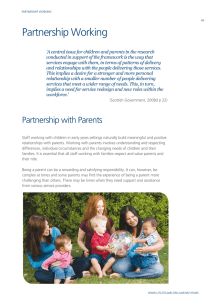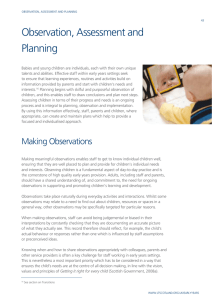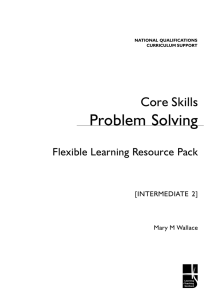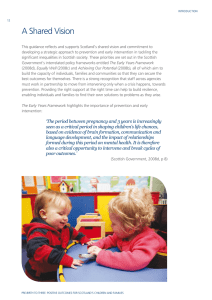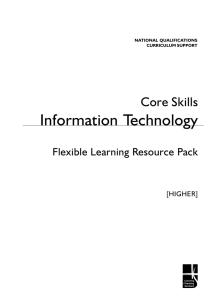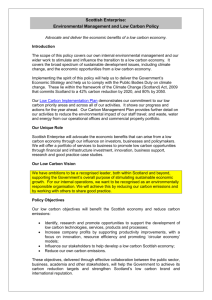Using Research to Inform Practice
advertisement
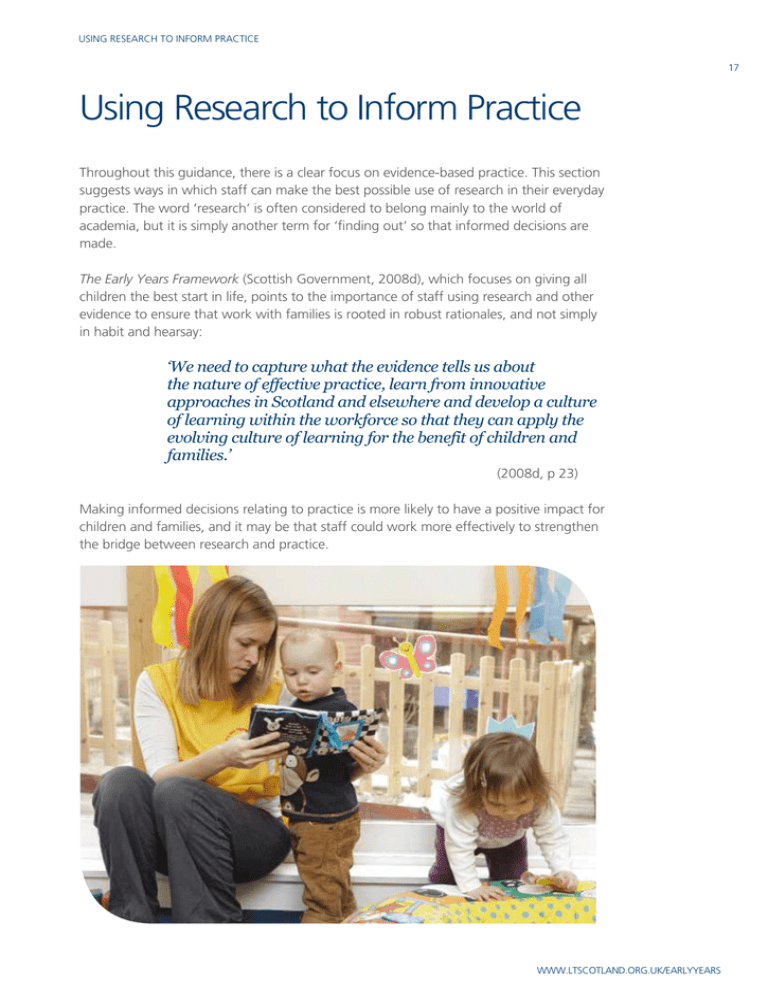
using research to inform practice 17 Using Research to Inform Practice Throughout this guidance, there is a clear focus on evidence-based practice. This section suggests ways in which staff can make the best possible use of research in their everyday practice. The word ‘research’ is often considered to belong mainly to the world of academia, but it is simply another term for ‘finding out’ so that informed decisions are made. The Early Years Framework (Scottish Government, 2008d), which focuses on giving all children the best start in life, points to the importance of staff using research and other evidence to ensure that work with families is rooted in robust rationales, and not simply in habit and hearsay: ‘We need to capture what the evidence tells us about the nature of effective practice, learn from innovative approaches in Scotland and elsewhere and develop a culture of learning within the workforce so that they can apply the evolving culture of learning for the benefit of children and families.’ (2008d, p 23) Making informed decisions relating to practice is more likely to have a positive impact for children and families, and it may be that staff could work more effectively to strengthen the bridge between research and practice. www.LTScotland.org.uk/earlyyears Using research to inform practice 18 In order to improve and promote evidence-based practice, staff could: • engage regularly in continuing professional development activity • articulate and communicate the questions that need to be explored to improve the quality of provision for children and families • share findings around what works in practice, by making use of Learning and Teaching Scotland website, Glow and other websites • subscribe to new e-bulletins, publications or websites • reflect on different aspects of practice with colleagues, children and parents and focus on what is done and why • encourage children to adopt a ‘finding-out’ culture so that research is regarded as a natural tool. Most staff would agree that being able to explain their practice by referencing relevant research or other evidence gives confidence and credibility to both the providers and users of a service. An exciting resource for staff to begin to explore research to inform their practice is the Growing Up in Scotland study (GUS). GUS is an important long-term research project aimed at tracking the lives of a sample of Scottish children from the early years, through childhood and beyond. The study is funded by the Scottish Government and carried out by the Scottish Centre for Social Research (ScotCen). Its principal aim is to provide information to support policy making, but it is also intended to be a broader resource that can be drawn on by academics, voluntary sector organisations and other interested parties. Focusing initially on a representative sample of 5,217 children aged 0–1 years (birth cohort) and another sample of 2,859 children aged 2–3 years (child cohort), the first wave of fieldwork began in April 2005. www.growingupinscotland.org.uk Every section of the Pre-Birth to Three guidance highlights findings from GUS that link to the nine features of key principles in practice. There are also signposts to other research studies for each feature. Many organisations and policy makers also collaborate in research groupings to distil research findings in a way that makes the research more accessible to staff and others. One example of this is the Scottish Government’s Early Years Framework Research into Practice Group, which has multi-agency representation. PRE-BIRTH TO THREE: POSITIVE OUTCOMES FOR SCOTLAND’S CHILDREN AND FAMILIES
